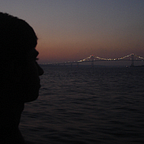Drawing a Line between Progress and Sustainability
Earlier this week, I watched this TED talk by Hans Rosling. During this talk, Rosling asks three questions:
1) Has the number of deaths in the last century doubled, remained the same or been halved?
2) How many years in school has the average woman spent in school (given that men spend 8 years on an average)?
3) Has the number of people living in extreme poverty doubled, remained the same or been halved?
The answer in each case (halved, 7 years and halved respectively) is that the world has gotten better! Yet, both the media and the general public when surveyed believed that the opposite was true.
Later the same day, I read this article in the New York Times titled “When Did Optimism Become Uncool”? Once again, it was highlighted that contrary to popular belief, the world is becoming a better place. This got me thinking: is there really an excess of pessimism about the direction in which our race is headed?
I for one worry about this a lot. I despair quite often that the nature of our progress is unsustainable and that I’m a cog in a machine that is, in many ways, part of the problem. The issue that I most fixate on is human impact on the environment, most notably, through climate change and pollution. From my high school days, I’ve been quite aware (or should I say been made aware) of peak oil, the ticking clock on coal and holes in the ozone layer. The effect of a 2C rise in temperatures over pre-industrial times is among my chief existential concerns and I agonize over the lack of serious action on a global stage. Having recently read “This Changes Everything: Capitalism vs. the Climate” by Naomi Klein, I’m further convinced that we are in the midst of a crisis.
So is my concern misplaced? What degree of pessimism and concern is appropriate? Has every generation felt this need to pull humanity back from the precipice? Are we growing stronger by the day, or are we accelerating towards the edge of a cliff? It doesn’t help that the political left and right agree on very little when it comes to the degree of danger issue. Or that as a member of the middle class, I find it very difficult to wade past privilege to understand ground realities.
Having mulled over this a bit, here’s how I’ve organized my thoughts:
- Progress: From an anthropocentric perspective, we have come a long way. Poverty, education, equality and other human centric social and economic challenges are gradually being overcome.
- Sustainability: Sustainability of this state of affairs is, however, suspect. A lot of our progress has come at the cost of the natural world around us. Air, water and nature have been treated as infinite and self-replenishing sources. There might have been a time when this was true for all practical purposes, but with our increasing rate of progress, this practical limit is being approached.
Progress and sustainability are two separate but interlinked concerns. As sustainability becomes more of an issue, there is a threat that our years of progress might come undone.
In sum, we ought to rejoice at how far human society has come, but we should at the same time remain wary of how fragile our way of life is.
If you like what you’ve just read, do share or recommend the article and follow me at @govind201 on Medium!
